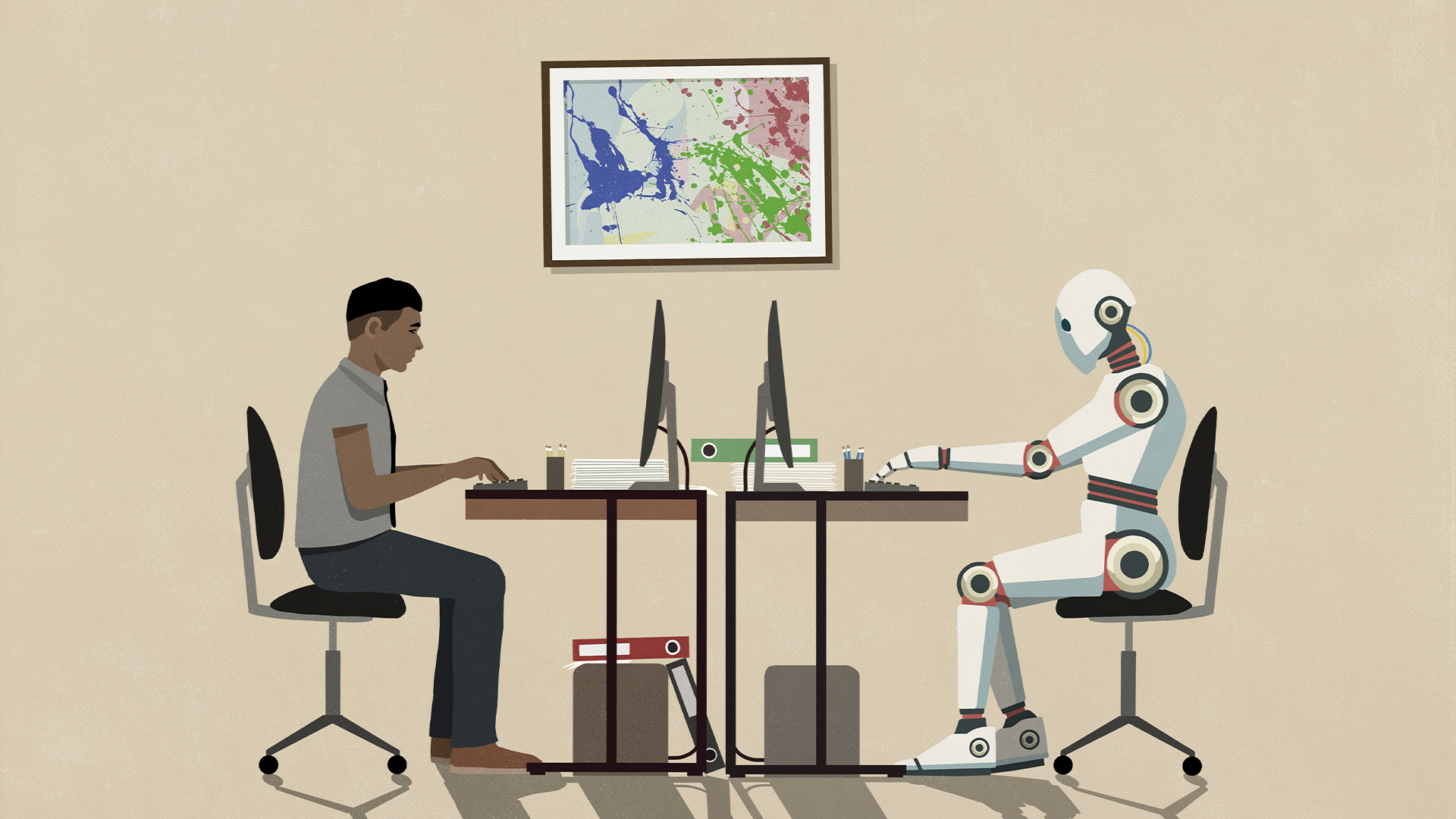The future of mobile working
We look into our crystal ball to try and predict what the future of mobile working could look like.


Sign up today and you will receive a free copy of our Future Focus 2025 report - the leading guidance on AI, cybersecurity and other IT challenges as per 700+ senior executives
You are now subscribed
Your newsletter sign-up was successful
With more smartphones and tablets operating using applications rather than complex programmes, working and sharing could become much easier in the future, according to Bamforth.
"Applications that share across tablets like digital white boards and flip charts will encourage collaboration in the coffee lounge office and bring in remote workers," he says.
Where better to access these applications than from a company app store, where every piece of software you need is available in one place, cross-device and supported by the IT department, preventing people from downloading illegal or insecure alternatives?
However, with this increased flexibility comes a nightmare for IT departments, with an open ecosystem for all kinds of malware and threats to creep in.
"The problems around security will continue to grow as will the challenge of managing mobile as hoc workers who may be in, out or wandering around the facility," Bamforth explains.
"Checking where people are and what they are up to might become more of a management tool. Think 'where's my iPhone' for an entire team but instead of click to lock and wipe, more click to check apps being used and ask employees how they are doing."
Both Nokia and Yahoo! have recently reversed their mobile working strategies. Nokia found that because face-to-face time between employees dropped (as did desk utilisation by 30 per cent), morale dropped along with productivity.
So Nokia decided to redevelop its workspace to become more akin to the caf culture Bamforth believes workspaces are increasingly becoming.
Sign up today and you will receive a free copy of our Future Focus 2025 report - the leading guidance on AI, cybersecurity and other IT challenges as per 700+ senior executives
Nokia worked with architecture firm Gensler to produce an open-plan London office that enticed workers to come back and work from there. Now, employees are encouraged to use mobile devices and sit in comfortable seating areas rather than being tied to their desks on desktop computers, according to Gensler's Matt Jackson.
It's a whole new way of working and although it doesn't offer employees the flexibility of working from home, from the gym or on the move between meetings, it's a much less stuffy, relaxed environment that has been embraced by workers, he adds.
Although companies are increasingly trying to implement mobile working strategies, cultural issues remain as one big barrie. With a negative attitude to working away from the office still very much a reality, managers need to wake up and smell the coffee after all, a motivated workforce is a successful one and only implementing a BYOD policy may not be enough to satisfy employees in the years and decades to come.
Top future workplace innovations
Wearable electronics
Wearable electronics have been around for years, but what if you docked yourself rather than your device? With all your mobile devices plugged into your clothing, you could simply sit in a chair whether at home, in your car or in your office - and your mobile screen will appear on the monitor in front of you, ready for you to work anywhere.
Voice control and command
Who needs to type when they have the power of voice? There's no denying that a keyboard takes up valuable space and, with services like Siri and Google Voice becoming better at recognising commands, there's no reason they can't form the basis of our working lives allowing us to completely scrap the keyboard.
Company App Stores for Cloud-based services
In the future, everything will be multi platform, stored in the cloud, from a document-editing tool, to calendars, CRM applications and any corporate software. This means from one centralised location, you'll be able to access important programs from your tablet, laptop or smartphone using a secure connection, wherever you are. And where better to access these applications than from a company app store, where every piece of software you need is available in one place, cross-device and supported by the IT department, preventing people from downloading illegal or insecure alternatives?

Clare is the founder of Blue Cactus Digital, a digital marketing company that helps ethical and sustainability-focused businesses grow their customer base.
Prior to becoming a marketer, Clare was a journalist, working at a range of mobile device-focused outlets including Know Your Mobile before moving into freelance life.
As a freelance writer, she drew on her expertise in mobility to write features and guides for ITPro, as well as regularly writing news stories on a wide range of topics.

